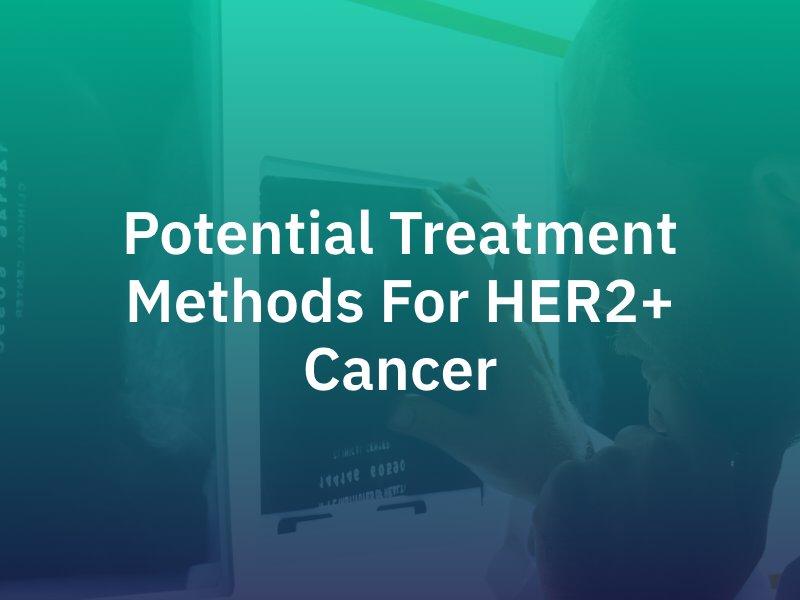Potential Treatment Methods for HER2+ Cancer
Posted on September 14, 2023 in Medical Malpractice
Any time the word cancer comes into the conversation, it is frightening. HER2+ cancer is a test that detects a protein known as human epidermal growth factor receptor 2 (HER2). If this protein is present, it can promote cancer cell growth.
HER2+ breast cancers are usually aggressive types of breast cancer. Around 20% of cancer cells in these cancers contain duplicates of the gene that makes the HER2 protein. Thankfully, there are treatments today that offer hope for treating the condition.
In the past twenty years, there have been medical advances that have produced therapies that have been effective in treating this form of cancer. If a loved one was incorrectly diagnosed with this condition, a Salem HER2+ misdiagnosis attorney may be able to help.

Facts About HER2-Positive
HER2 + breast cancers make up about 20% of breast cancers. This means around one out of every five breast cancer patients have a detectable HER2+ subtype. If a cancer patient has the HER2+ subtype, their tumor contains heightened protein levels referred to as human epidermal growth factor receptor 2 (HER2).
Because of the role of this protein, these breast cancers are often very aggressive. To fight an aggressive cancer with such momentum, it is crucial to have a bold plan of attack.
Helpful Vocabulary to Understand HER2+ Courses of Treatment
Discussing treatment is the logical next step if you or a loved one has been diagnosed with HER2+ breast cancer. Some of the vocabulary used when discussing these treatments may not be familiar to most people. Listed below are some of the terms that you may hear when your treatment plan is being designed:
- Neoadjuvant: The term neoadjuvant refers to how the tumor will be treated prior to surgery. An effort will be made to reduce the size of the tumor before its removal is attempted.
- Adjuvant: When adjuvant treatment is discussed, it refers to medical intervention given following the surgery to remove the tumor. The aim of adjuvant treatments is to eradicate the cancer cells from the patient.
- Targeted therapy: Targeted therapy uses medication to thwart particular cancer cells from developing. It does this by impeding their ability to develop and endure.
- Endocrine therapy: Endocrine therapy is performed to lower the body’s estrogen levels. It is also used to obstruct estrogen activity.
- Biologic: When the cancer is treated using living organisms, it is known as biologic therapy. These organisms can be proteins, sugars, or through the use of cells and tissues.
- Chemotherapy: Chemotherapy employs chemicals in the form of intense drugs that destroy cancerous cells.
Treatment Methods for HER2+
If caught in the early stages, the most common courses of treatment for HER2+ breast cancer will usually include a combination of treatments. The methods typically combine surgery, chemotherapy, targeted therapy, and other modalities. Your healthcare team will narrow down the most appropriate treatments for your case and develop the most effective strategy.
Neoadjuvant Chemotherapy Plus Her2+ Target Therapy
Most HER2+ breast cancer treatments will follow this route. Neoadjuvant chemotherapy will reduce the cancer’s size before surgery, even if the tumor is small. Surgery will be used to remove as much of the cancerous area as possible. Then, adjuvant therapy will be used to target the area.
Surgery Then Adjuvant Treatment
A less commonly used combination begins with surgery to remove the tumor. After the surgery, adjuvant treatments are used to remove the remaining cancer cells. Chemotherapy and HER2+-directed therapy are the routes taken most often if this is the prescribed treatment plan.
Hormone Driven Treatment
After determining whether the HER2+ cancer is hormone receptor-positive, endocrine therapy might be your healthcare team’s suggestion. It will come in the form of a daily pill that is ingested for a minimum of five years following your last chemotherapy treatment.
Consult Your Healthcare Team About Your Specific Treatment Plan
The treatment protocols listed above are far from exhaustive. Each case will vary if you have been diagnosed with breast cancer. Because of the differences, there will be differences in how they are treated. It is crucial to have a healthcare team that you trust. Do not hesitate to pursue a second opinion.
